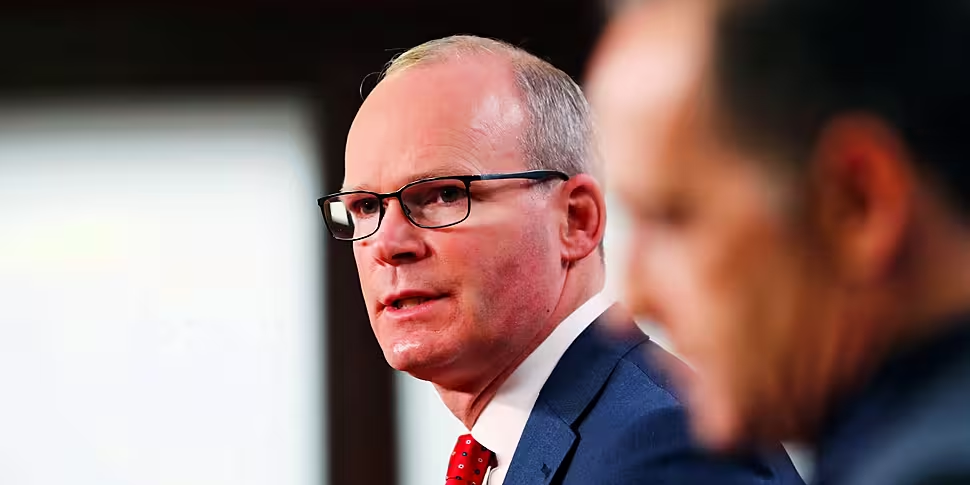The obligation to implement the Northern Ireland Protocol is 'very much with' the British government and prime minister, Foreign Affairs Minister Simon Coveney says.
He was speaking following the resignation of Northern Ireland's First Minister, the DUP's Paul Givan, in protest over the protocol as a result of Brexit.
While the region's Agriculture Minister, Edwin Poots, ordered officials in his department to stop carrying out checks on goods at ports.
But Minister Coveney told Newstalk Breakfast the checks are continuing.
"Those officials haven't stopped doing that, and those checks will continue until at least next Monday.
"All sides I think are taking legal advice.
"The Irish Government has responded to that in the same way that the European Union has responded to it.
"That is simply seen by us and by the EU as a breach of international law".
He says despite the current situation in the North, the ultimate obligation is on London.
"The primary responsibility for ensuring that Britain's responsibilities under international law and treaties that they've signed is with the British government - not with devolved institutions in Northern Ireland that are no longer functioning.
"The obligation here is very much with the British government and with the British prime minister to fulfill the commitments that they've made, and not to breach international law.
"And I think the EU has made that very clear to the British government".
Abd Minister Coveney says the DUP is alone on its approach.
"Well it's certainly politics from [the DUP], that's for sure.
"What's happened now is we have the DUP on one side of the argument, who are saying that they have been threatening to collapse the institutions in Northern Ireland for some time in protest at the protocol because they want to see change.
"And all of the other parties in Northern Ireland saying that shouldn't happen, we need to work together."
He says while there are differences between the parties, collapsing Stormont "is a very unfortunate, unwelcome move".
"What it means now is that even though there aren't going to be elections in Northern Ireland until May, and we are moving into an election cycle, it means that effectively the assembly and the executive is now paralysed."
He says caretaker ministers will remain in place, but they cannot pass any new legislation.









